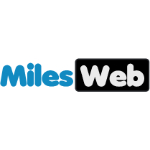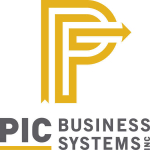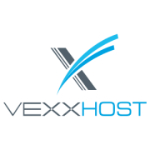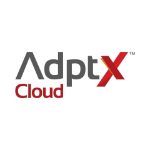TechnologyCounter provides genuine, unbiased real user reviews to help buyers make informed decisions. We may earn a referral fee when you purchase through our links, at no extra cost to you.
List of 15 Best Cloud Computing Platform
Showing 1 - 15 of 25 productsMilesWeb is a leading web hosting provider that offers reliable and affordable solutions for individuals and businesses. With a team of experienced professionals and state-of-the-art technology, MilesWeb is committed to delivering exceptional hosting...Read MilesWeb Reviews
StoneFly Smart Cloud is a cloud computing solution designed to enhance your business operations. With its advanced technology and user-friendly interface, StoneFly Smart Cloud provides a seamless experience for managing data, applications, and networ...Read StoneFly Smart Cloud Reviews
Devabit is a software solutions company that provides innovative and specialized services to help businesses achieve their goals and maximize their potential. With a team of skilled and experienced professionals, Devabit offers customized is a soluti...Read devabit Reviews
Squadcast, is a solution for streamlined incident management. Built with efficiency and ease of use in mind, Squadcast simplifies the handling of technical issues, ensuring swift resolution and minimizing downtime. With its powerful features and user...Read Squadcast Reviews
PIC ERP is a dynamic is a enterprise resource planning software designed to streamline your business processes and propel your organization towards success. With its user-friendly interface and robust features, PIC ERP helps businesses of all sizes m...Read PIC ERP Reviews
Thread Legal, the latest software designed to streamline and enhance the legal industry experience. With its advanced features and user-friendly interface, Thread Legal is set to revolutionize the way legal professionals manage their work. Say goodby...Read Thread Legal Reviews
VEXXHOST is a leading cloud infrastructure provider that delivers reliable and affordable solutions to businesses of all sizes. With a focus on simplifying the complexities of the cloud, VEXXHOST offers a diverse range of services, from managed OpenS...Read VEXXHOST Reviews
IOP Azure Cloud is a and innovative cloud-based service that revolutionizes the way businesses store, manage and access their data. With its advanced technology and user-friendly interface, IOP Azure Cloud empowers organizations to securely is a ly h...Read IOP Azure Cloud Reviews
Adptx Cloud, a revolutionary software that simplifies and streamlines business operations. With its advanced features and user-friendly interface, Adptx Cloud offers a seamless is a solution for all your organizational needs. Say goodbye to tradition...Read Adptx Cloud Reviews
SmiKar Cloud Storage Manager is a solution for managing all your files, documents, and data in the cloud. With its advanced features and user-friendly interface, SmiKar offers a seamless experience for storing, organizing, and accessing your informat...Read SmiKar Cloud Storage Manager Reviews
Cirrusform is a software that helps businesses of all sizes streamline their forms and processes effortlessly. With user-friendly features and customizable options, Cirrusform is designed to enhance efficiency and optimize productivity. Say goodbye t...Read Cirrusform Reviews
Hava is a software designed to simplify your workflow and enhance project management. With its intuitive interface features, Hava streamlines your tasks and improves collaboration among team members. Say goodbye to complex processes and hello to a se...Read Hava Reviews
HealthLink Telehealth and Telemedicine offers innovative and convenient solutions for virtual healthcare services. With a team of qualified healthcare professionals technology, HealthLink is dedicated to providing exceptional telehealth and telemedic...Read HealthLink Telehealth and Telemedicine Reviews
Shells is a software that allows you to access your favorite applications and files from any device, anytime, anywhere. Featuring an intuitive interface and seamless integration, Shells transforms the way you work, making it faster, easier, and more...Read Shells Reviews
VectorViewer HTML5 Viewer is a solution for seamless and immersive vector graphics experience. This innovative software brings a whole new level of efficiency and convenience, allowing users to effortlessly view and manipulate vector images with prec...Read VectorViewer HTML5 Viewer Reviews
- What Is Cloud Computing Platform?
- Top Reasons Why Businesses Need Cloud Computing Platform?
- What Are the Top Key Features of Cloud Computing Platform?
- What Are the Top Benefits of Cloud Computing Platform?
- What Are the Steps to Choose the Right Cloud Computing Platform?
- What Are the Types of Cloud Computing Platform for Different Industries?
- What Are the Technology Trends for Best Cloud Computing Platform?
- What Are the Deployment Options for Cloud Computing Platform?
What Is Cloud Computing Platform?
A cloud computing platform is a web-based service that enables you to store, manage, process, and exchange data, applications, and other resources in the cloud, or on the Internet. It provides enterprises with access to powerful computing capabilities that can boost operational efficiency and scalability.
Multi-tenancy, scalability, configurability, integration, and rapid deployment are just a few of the benefits of the best cloud computing platform. Multi-tenancy is a feature that allows numerous users to share a single computing instance while being completely separate from one another.
This enables users to make better use of the resources at their disposal. Another significant advantage afforded by top cloud computing platforms is scalability. When additional resources are required, cloud computing enables you to obtain additional resources such as servers, memory, and storage on a pay-as-you-go basis, allowing you to meet the demands of your fast expanding organization.
Configurability is also vital; popular cloud computing platforms enable users to create and adjust their systems using their own scripts and programs. Furthermore, top cloud computing platforms communicate with other applications and systems, allowing for the quick and seamless integration of new components.
This makes it easier for a company to grow or adapt to ever-changing needs. Finally, cloud computing platforms enable users to install applications and resources in record time. This enables enterprises to swiftly and reliably deploy applications with minimal effort.
In summary, cloud computing online platforms provide enterprises with a number of tools and features that allow them to improve operational efficiency, scalability, configurability, and integration possibilities. As a result, cloud computing is a cost-effective and efficient solution to leverage modern computer technologies.
Top Reasons Why Businesses Need Cloud Computing Platform?
1. Cost-Effectiveness: Cloud computing allows organizations to access the tools, resources, and apps they need to flourish without having to invest considerably in upfront IT infrastructure costs.
2. Scalability: Cloud computing allows businesses to easily scale up or down as their resource needs increase or decrease.
3. Remote Access: The best cloud computing platform enables organizations to access their data and apps from any location in the world at any time.
4. Enhanced Productivity: Cloud computing enables teams to work and communicate more effectively, with instant access to tools and data from any device.
5. Automation: Businesses can use cloud computing to automate common procedures, eliminating manual labor and saving time.
6. Enhanced Security: Cloud computing provides enhanced security features to protect sensitive data from cyber-attacks.
7. Backup & Disaster Recovery: With safe backups and disaster recovery procedures in place, cloud computing may assist businesses in remotely protecting their data.
8. Flexibility: With the cloud, organizations can access cutting-edge technology and services on-demand, without having to deploy or operate on-premises IT infrastructure.
9. Agility: By embracing cloud computing, businesses may swiftly develop new applications and features without investing in more gear or workers.
10. Data Analysis: By shifting data to the cloud, businesses can gain access to advanced analytics and insights that can help them make better decisions.
11. More Storage: The cloud provides organizations with unlimited storage to access and store data, guaranteeing that they never run out of space.
12. Improved cooperation: With shared resources and apps, cloud computing may promote cooperation across departments and remote teams.
13. higher Performance: Because of the cloud's distributed architecture and effective scaling capabilities, businesses can benefit from higher performance and responsiveness from their apps.
14. Leverage Device Agnostic Experience: Because users can access applications and data on any device, cloud computing reduces the need for enterprises to acquire and manage hardware.
15. Utilization of Cutting-Edge Technologies: Top cloud computing platforms enable businesses to capitalize on cutting-edge technical advances such as artificial intelligence and machine learning without investing time and resources in R&D.
What Are the Top Key Features of Cloud Computing Platform?
1. Scalability: Because top cloud computing platforms are easily scalable, businesses can swiftly adjust to workloads and respond to changes in demand with minimal effort.
2. Security: Cloud computing delivers advanced security features such as encryption, access restrictions, and more to safeguard your data and preserve your information's privacy and security.
3. Resource Pooling: In the cloud, resources such as computing power, memory, and storage are pooled together, providing quick and easy access to resources.
4. Cost-Effectiveness: The best cloud computing platform is cost-effective since customers just pay for the resources they use rather than invest in expensive infrastructure.
5. High Availability: Cloud computing solutions deliver high availability and uptime, guaranteeing that your clients' services are always available when they need them.
6. Mobility: Cloud-based data and apps may be accessible from anywhere, giving for greater mobility and flexibility when needed.
7. Elasticity: Top cloud computing platforms are elastic, allowing for rapid resource scaling up and down as needed.
8. Automation: The best cloud computing platforms enable automated application and service deployment and administration.
9. Monitoring and Analytics: Cloud-based computing platforms offer comprehensive monitoring and analytics services, allowing enterprises to get insight into consumption trends and optimize resources.
What Are the Top Benefits of Cloud Computing Platform?
The following are the primary advantages of Cloud Computing Platform:
1. Low Upfront Capital Cost: The best cloud Computing Platform provides a lower initial capital cost than traditional IT investments. It enables organizations to pay for exactly the resources they require and eliminates the need for hardware and software procurement, management, and maintenance.
2. Scalability: The best cloud computing platform is simple and fast expandable, allowing customers to provision extra physical or virtual resources as demand grows. This adaptability enables firms to respond to market developments more rapidly and efficiently manage their workload and resources.
3. Improved Disaster Recovery: The top cloud Computing Platform allows businesses to securely backup their data to an offsite location, guaranteeing that it can be recovered promptly in the event of a significant system failure or natural disaster.
4. Flexibility: The cloud-based computing platforms enable enterprises to quickly deploy applications and services cost-effectively, without having to worry about hardware or software compatibility issues. This enables enterprises to improve their application deployment timelines and adapt rapidly to changing client needs.
5. Automation: With cloud computing online platforms, businesses may automate processes and reduce the amount of human labor required for day-to-day operations. This assists organizations in lowering operational expenses and increasing efficiency, while also freeing up resources for other projects.
6. Improved Data Security: The online platform for cloud computing improves data security by enabling enterprises to securely split applications and data, lowering the chance of data loss or security breaches. This assists enterprises in strengthening their data security procedures, protecting personal information, and complying with regulations.
What Are the Steps to Choose the Right Cloud Computing Platform?
1. establish your goals: First and foremost, you must establish why you and/or your company are adopting the best cloud computing platform. Consider whether you require data storage, remote access to apps, the development of online and mobile applications, analytics, or other services. Consider the infrastructure required to achieve these goals as well.
2. Evaluate the cloud computing providers that are available: Investigate the market to compare the cloud services provided by various suppliers and ensure they meet your requirements. Make careful to evaluate pricing models, storage capacity, network capabilities, security protocols, customer service, and other features.
3. Balance cost and scalability: Carefully consider the costs associated with establishing, operating, and maintaining a top cloud computing platform, and compare them against the scalability and flexibility that the platform provides.
4. Examine certifications and compliance requirements: Ensure that the provider is certified to protect the security of your data and systems, as well as compliance with industry norms and standards such as ISO, HIPAA, PCI, and others.
5. try the service: Once you've decided on the finest supplier for your needs, try the service before signing a long-term contract. Check to confirm that the service is dependable - that performance is adequate, that data is securely backed up and secured, and that customer service answers on time.
What Are the Types of Cloud Computing Platform for Different Industries?
Cloud computing can be used in a variety of industries, and there are various distinct types of top cloud computing platforms available.
1. Infrastructure as a Service (IaaS): This cloud computing platform offers virtual services such as virtual machines, storage space, and networks. Organizations can use these services on a pay-as-you-go basis, eliminating the need to purchase, maintain, or update the underlying hardware.
This platform is appropriate for industries that require regular or large-scale processing capacity, such as finance, media/entertainment, and healthcare.
2. Platform as a Service (PaaS): PaaS refers to the supply of a complete top cloud computing platform as a service, which includes an operating system, development tools, middleware, databases, and other services. It enables enterprises to swiftly design, test, and deploy apps without the need to set up or manage their servers and storage.
This platform is ideal for industries like retail, transportation, and logistics that demand frequent and complicated software changes.
3. Software as a Service (SaaS): SaaS gives subscription-based access to programs, reducing the requirement for customers to install or administer software on their systems.
This can be used to provide a variety of corporate services, ranging from top customer relationship management (CRM) software to collaboration tools and analytics dashboards.
What Are the Technology Trends for Best Cloud Computing Platform?
Cloud Computing Platform technology trends are rapidly changing, with constant developments in processing power, storage capacity, network designs, security, scalability, and cost.
As cloud-based services become more complex, competition among cloud service providers intensifies.
The top cloud computing platform trends are as follows:
1. Make hybrid cloud architectures easier to implement: The best cloud computing platform providers are concentrating on making hybrid cloud architectures easier to implement and more accessible to consumers.
2. Ongoing innovation: Cloud platforms are significantly investing in upgrading existing services and developing new ones, ranging from analytics to machine learning.
3. Increased emphasis on security and compliance: Companies are putting more emphasis on ensuring compliance with privacy and data protection laws.
4. Containerization and orchestration: Containers enable the secure delivery of program components. Orchestration solutions facilitate the management of container-based applications in a cloud environment transparently and efficiently.
5. Serverless computing: Serverless computing allows businesses to respond rapidly to customer demand by dynamically scaling up and down, limiting idle capacity and assisting in cost savings.
6. Artificial Intelligence (AI): AI is changing the way we utilize popular cloud computing platforms, with many services now offering machine learning algorithms that can automate processes and provide insights into user data.
7. MLaaS (Machine Learning as a Service): MLaaS allows users to access machine learning techniques and models without the need to develop their infrastructure.
8. NLPaaS (Natural Language Processing as a Service): Cloud service providers are releasing tools to assist customers in developing apps that comprehend and interact with humans.
9. Utilization of edge computing and the Internet of Things (IoT): With the massive increase in linked devices, edge computing is becoming increasingly significant. Top cloud-based computing platform providers are developing solutions that allow for the optimal use of edge and IoT data.
What Are the Deployment Options for Cloud Computing Platform?
1. On-Premises Deployment: When a company implements cloud services and applications in its data centers. This gives the company more control over the cloud infrastructure's configuration, maintenance, and security.
2. Private Cloud Deployment: This type of deployment is utilized when a company hosts its cloud services on its equipment, in a place apart from the public cloud environment. This allows the company more control over the cloud infrastructure's configuration, maintenance, and security.
3. Public Cloud Deployment: When a company moves its services and applications to a public cloud provider like Amazon Web Services (AWS), Microsoft Azure, or Google Compute Engine (GCE). This is the most cost-effective solution because the company does not need to acquire anything.
4. Hybrid Cloud Deployment: This configuration combines private and public cloud deployments. This allows the company more control over its data while simultaneously benefiting from the cost savings provided by the public cloud.
5. Multi-Cloud Deployment: This deployment makes use of dispersed services from multiple cloud providers. This enables the company to benefit from the advantages of each cloud provider while also guaranteeing that their data is protected and backed up across numerous providers.















